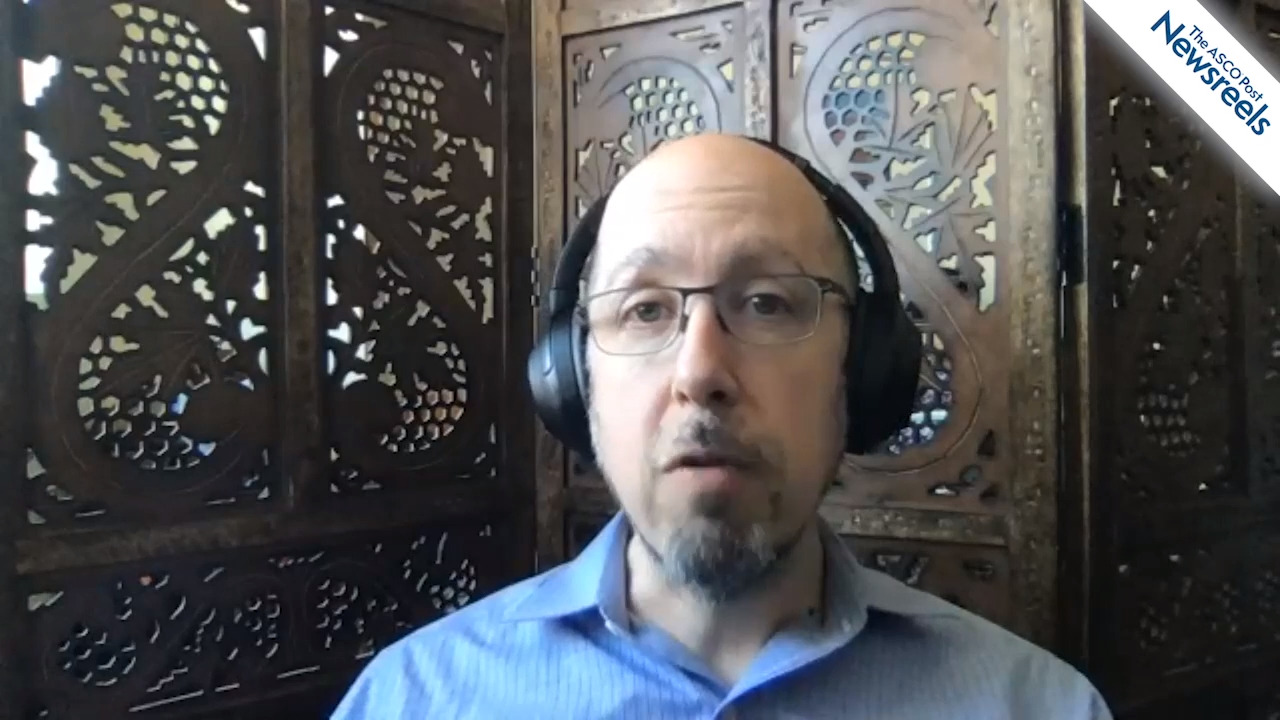Jessica C. Hassel, MD, on Uveal Melanoma: Comparing Tebentafusp With Standard Therapies
AACR Annual Meeting 2021
Jessica C. Hassel, MD, of University Hospital Heidelberg, discusses phase III results of a study that compared tebentafusp, a bispecific fusion protein, with investigator’s choice in patients with metastatic uveal melanoma. Tebentafusp nearly halved the risk of death among patients in the trial with this rare eye cancer (Abstract CT002).
The ASCO Post Staff
Richard S. Finn, MD, of UCLA Medical Center, discusses updated efficacy and safety data from the IMbrave150 trial of patients receiving atezolizumab plus bevacizumab vs sorafenib as first-line treatment for unresectable hepatocellular carcinoma (Abstract CT009).
The ASCO Post Staff
Ralph R. Weichselbaum, MD, of the University of Chicago, discusses oligometastasis as a part of the metastatic spectrum where ablative therapies, such as surgery or stereotactic body radiotherapy, may be curative alone or with systemic agents, as well as some potential biomarkers to guide treatment selection.
The ASCO Post Staff
Matthew J. Matasar, MD, of Memorial Sloan Kettering Cancer Center, discusses phase III results of the CHRONOS-3 trial, which showed that copanlisib plus rituximab led to a 48% reduction in the risk of disease progression or death compared with placebo plus rituximab in patients with relapsed indolent non-Hodgkin lymphoma (Abstract CT001).
The ASCO Post Staff
Katelyn T. Byrne, PhD, of the Perelman School of Medicine at the University of Pennsylvania, discusses the first in-depth analysis of the impact of selicrelumab, an anti-CD40 antibody, which was found to enrich T cells in pancreatic tumors, activate the immune system, and alter the tumor stroma (Abstract CT005).
The ASCO Post Staff
Lipika Goyal, MD, of Massachusetts General Hospital, discusses phase II results of the FOENIX-CCA2 trial, which explored the clinical benefit of futibatinib, an FGFR1–4 inhibitor, tested in patients with intrahepatic cholangiocarcinoma that harbored FGFR2 gene fusions or other rearrangements (Abstract CT010).





